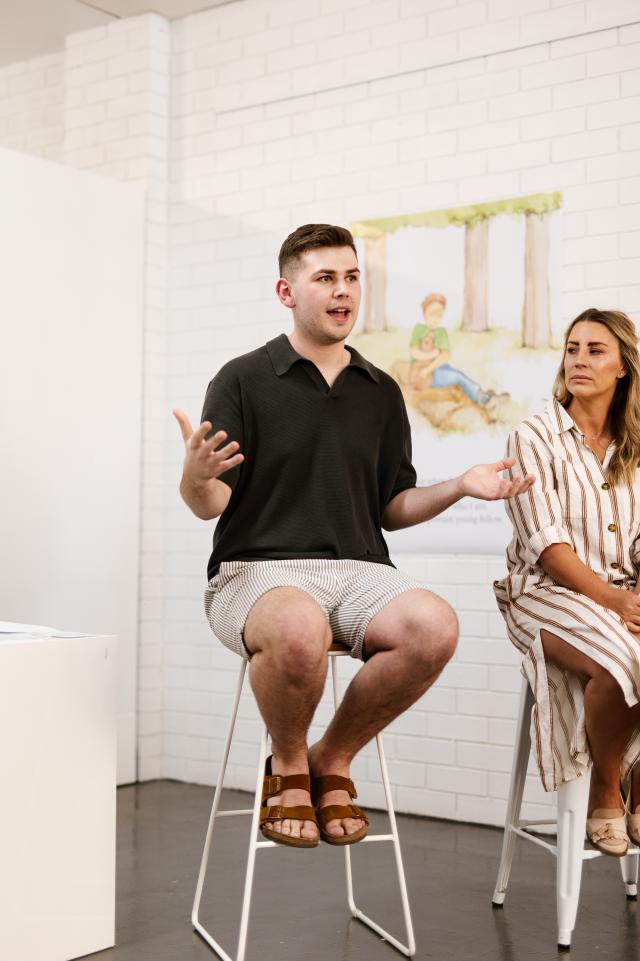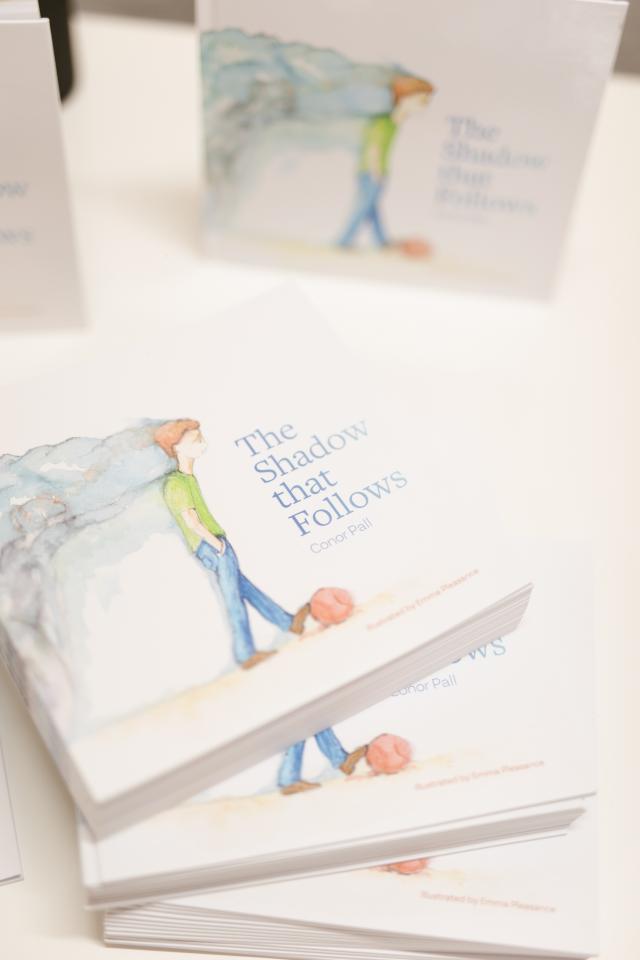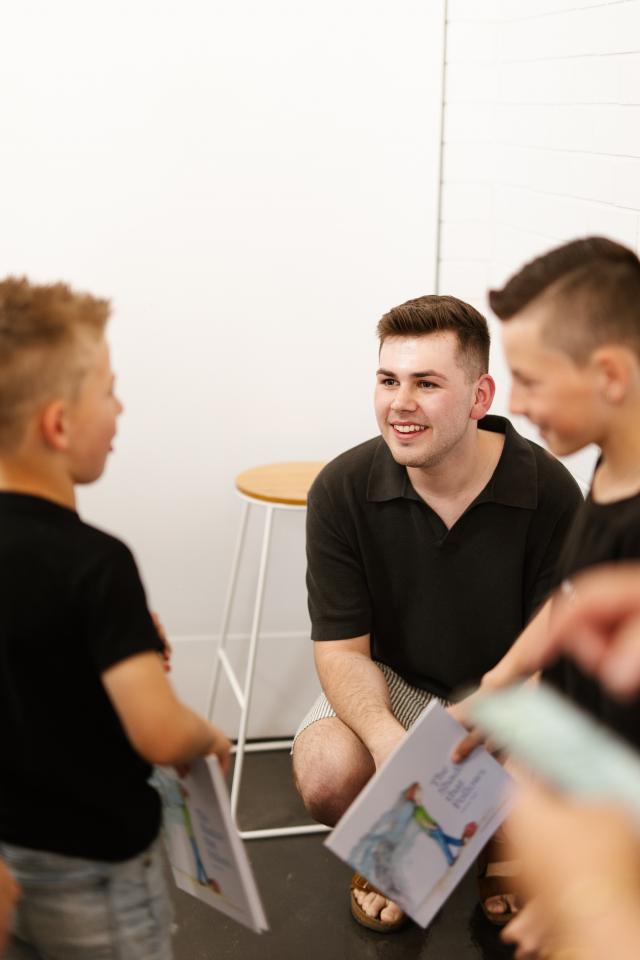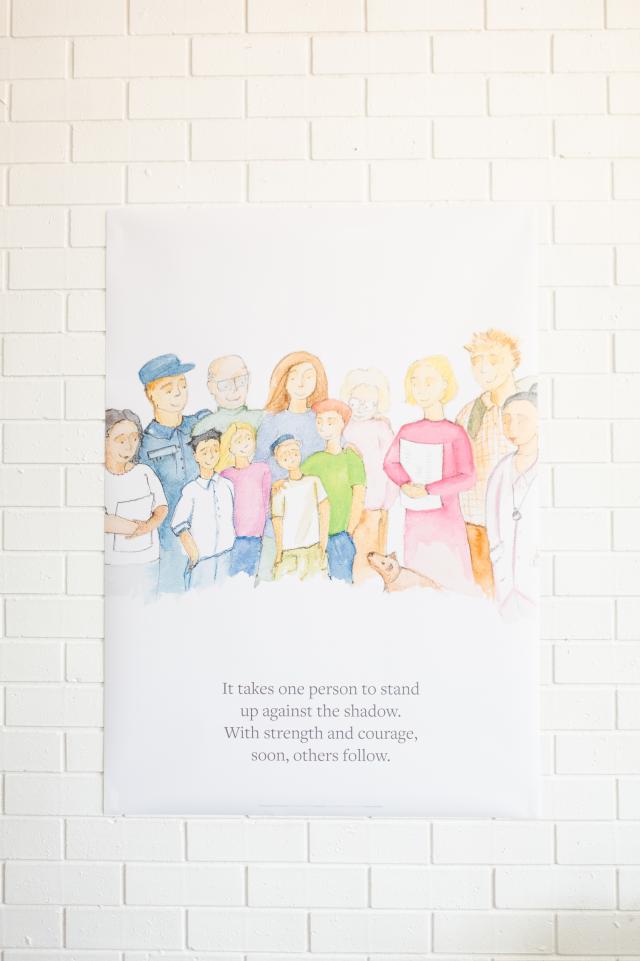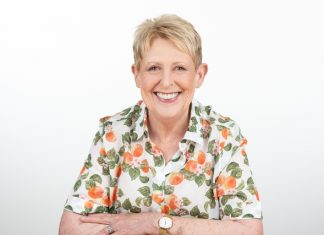By Casey Neill
A young male survivor is giving hope to children stuck in the shadow of family violence.
Conor Pall, 20, is determined to use his lived experience to drive change in several ways, including writing The Shadow that Follows.
“I wrote the book when the shadow was really big and scary, so when I was in Year 11 and 12, when I was really going through the impacts of family violence,” he said.
“Someone called it bibliotherapy. It was very therapeutic writing the book.
“I don’t want what happened to me to continue to happen to children and young people.”
Conor, the youngest Victorian Victim Survivor’s Advisory Council member, said one in three women and one in nine men experienced family violence.
“Ninety-seven percent of violence in Australia is committed by men, towards women, towards men, towards children,” he said.
“The common denominator in the story about family violence is men.
“We need to be supporting our young men to heal from family violence.
“You talk to perpetrators and the common thread is that they experienced some sort of violence when they were young.
“Hurt people, hurt people.
“What are we doing to support young boys today to tell them this behaviour is not acceptable in our society?
“There’s no time for tiptoeing around.
“We can’t continue to frame this as a women’s issue.
“It hasn’t worked.
“It’s not violence against women, it’s male violence. It’s male-perpetrated violence.
“With the next stage of the reforms in Victoria, particularly, men and young boys have been identified as agents of generational change.
“For us to break the cycle and stop family violence in one generation, which is in line with the national plan, we’re going to need to bring men along to the issue.”
Conor said The Shadow that Follows was designed to be used with care and with a safe adult.
“It’s being distributed to schools and refuges in Victoria,” he said.
“It’s not a mainstream children’s book. It’s an educational resource.
“I wish there was a resource like this when I was a kid.
“I didn’t have the language to understand that what I was going through was wrong.
“I didn’t have someone to tell me that what I was going through wasn’t normal.
“My schools weren’t having those conversations when I was going through family violence.
“It’s now embedded.
“They’re difficult conversations for teachers to approach.
“That doesn’t mean it’s not worthwhile doing.
“If a teacher had asked me if I was OK, or noticed I’d been absent from school, I probably would have started my journey of healing a lot sooner.
“I was a class clown and would get in trouble a bit at school.
“Those behaviours are warning signs.
“Research shows that if kids are exhibiting challenging behaviours or unhelpful behaviours in the classroom, we can’t be punitive in response.
“We need to be respectfully curious and not just think because a kid’s misbehaving that they’re a bad kid.”
School was a safe space for Conor.
“That’s where I went to decompress,” he said.
“I remember instances of sitting in the classroom just watching the clock and counting down to when I’d have to go home.
“I was 9 or 10 going through those emotions and didn’t have anyone to talk to about those emotions.
“Get comfortable with having those uncomfortable conversations.
“We’re talking about lives.”
The Shadow that Follows includes the message that it takes one person to make a change.
“My mum was that one person that took a stand against the shadow,” Conor said.
“Others followed.
“The people I’ve had supporting me through the impacts of family violence have made me the young advocate I am today.
“Survivors make the best advocates.
“So often the common thread throughout our stories is you don’t have a voice for years.
“We suppress our emotions.
“When we have this space to heal and recover, people tend to want to watch out when we start to use our voice to make change.”
Conor received a Victorian Young Achiever of the Year Award in 2022 for his advocacy.
He’s now studying social work at RMIT University and hopes to pair this with a master’s in public policy with a view to working in policy.


